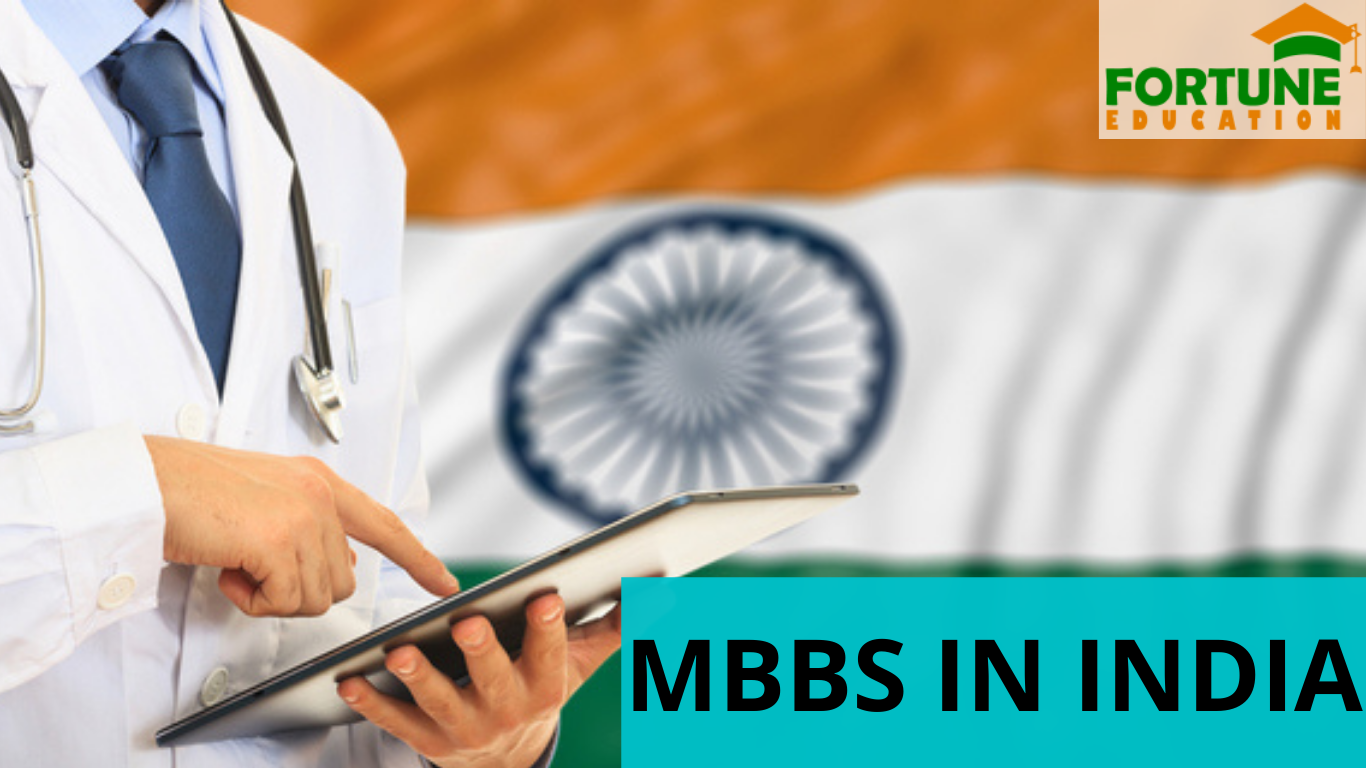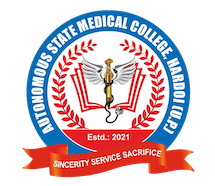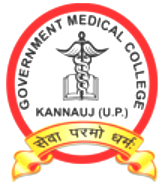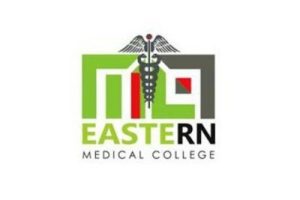
Lowest Fee Structure for MBBS in India
India offers a variety of medical colleges with different fee structures, ranging from government institutions with very low fees to private colleges with higher fees.
Lowest Fee Structure for MBBS in India
Here’s a guide to some of the medical colleges in India that offer MBBS programs with the lowest fee structures, particularly focusing on government and semi-government institutions.
Government Medical Colleges
Government medical colleges in India generally have the lowest fee structures for MBBS courses. These colleges offer high-quality education at subsidized rates, making them accessible to a larger number of students.
- All India Institute of Medical Sciences (AIIMS)
- Location: New Delhi (and other locations across India)
- Annual Tuition Fee: Approximately INR 1,500
- Total Fees: Including hostel and other charges, around INR 5,000 to INR 10,000 per year.
- Maulana Azad Medical College (MAMC)
- Location: New Delhi
- Annual Tuition Fee: Approximately INR 2,500
- Total Fees: Including hostel and other charges, around INR 15,000 per year.
- Jawaharlal Institute of Postgraduate Medical Education and Research (JIPMER)
- Location: Puducherry
- Annual Tuition Fee: Approximately INR 4,000
- Total Fees: Including hostel and other charges, around INR 20,000 per year.
- Grant Medical College
- Location: Mumbai, Maharashtra
- Annual Tuition Fee: Approximately INR 70,000
- Total Fees: Including hostel and other charges, around INR 1,00,000 per year.
- King George’s Medical University (KGMU)
- Location: Lucknow, Uttar Pradesh
- Annual Tuition Fee: Approximately INR 54,900
- Total Fees: Including hostel and other charges, around INR 1,00,000 per year.
Semi-Government Medical Colleges
Semi-government medical colleges, often referred to as state quota colleges, have slightly higher fees than central government institutions but still offer affordable education compared to private medical colleges.
- Seth GS Medical College
- Location: Mumbai, Maharashtra
- Annual Tuition Fee: Approximately INR 70,000
- Total Fees: Including hostel and other charges, around INR 1,50,000 per year.
- Bangalore Medical College and Research Institute
- Location: Bangalore, Karnataka
- Annual Tuition Fee: Approximately INR 50,000
- Total Fees: Including hostel and other charges, around INR 1,20,000 per year.
- Osmania Medical College
- Location: Hyderabad, Telangana
- Annual Tuition Fee: Approximately INR 20,000
- Total Fees: Including hostel and other charges, around INR 60,000 per year.
- Stanley Medical College
- Location: Chennai, Tamil Nadu
- Annual Tuition Fee: Approximately INR 25,000
- Total Fees: Including hostel and other charges, around INR 75,000 per year.
- Government Medical College, Thiruvananthapuram
- Location: Thiruvananthapuram, Kerala
- Annual Tuition Fee: Approximately INR 25,000
- Total Fees: Including hostel and other charges, around INR 1,00,000 per year.
Key Factors to Consider
- Eligibility Criteria:
- Students must qualify for the National Eligibility cum Entrance Test (NEET) to be eligible for admission to MBBS programs in India.
- Reservation Quotas:
- Government and semi-government medical colleges have reservation quotas for different categories (SC/ST/OBC/EWS), which can impact the availability of seats and fee structures.
- Additional Costs:
- While tuition fees are a major component, students should also consider additional costs such as hostel fees, mess charges, examination fees, and other miscellaneous expenses.
- Scholarships and Financial Aid:
- Many state governments and institutions offer scholarships and financial aid to meritorious and economically disadvantaged students to help them cover the costs of their medical education.
Government and semi-government medical colleges in India offer the lowest fee structures for MBBS courses, making high-quality medical education accessible to a broader range of students. By choosing these institutions, students can achieve their dream of becoming medical professionals without incurring significant financial burdens.
For more detailed information on the admission process, eligibility criteria, and specific fee structures, prospective students should visit the official websites of the respective medical colleges or consult with educational consultants.
Detailed Guide to Studying MBBS in India with the Lowest Fee Structure
Studying MBBS in India is a dream for many aspiring medical students due to the country’s high standard of medical education and the vast array of opportunities available post-graduation. Here’s a more detailed guide on how to pursue MBBS in India, focusing on institutions with the lowest fee structures and what prospective students need to know.
Government Medical Colleges with the Lowest Fees
Government medical colleges in India are known for offering high-quality education at a fraction of the cost of private medical colleges. These institutions are heavily subsidized by the government, making them accessible to a larger number of students. Here are some of the top government medical colleges with the lowest fee structures:
1. All India Institute of Medical Sciences (AIIMS)
- Location: Multiple campuses across India including New Delhi, Bhopal, Bhubaneswar, Jodhpur, Patna, Raipur, and Rishikesh.
- Annual Tuition Fee: Approximately INR 1,500
- Total Fees: Around INR 5,000 to INR 10,000 per year (including hostel and other charges).
- Features: AIIMS is renowned for its state-of-the-art infrastructure, highly experienced faculty, and advanced research facilities. AIIMS New Delhi, in particular, is considered one of the best medical colleges in India.
2. Maulana Azad Medical College (MAMC)
- Location: New Delhi
- Annual Tuition Fee: Approximately INR 2,500
- Total Fees: Around INR 15,000 per year (including hostel and other charges).
- Features: MAMC is affiliated with top hospitals like Lok Nayak Hospital, GB Pant Hospital, and Guru Nanak Eye Centre, providing extensive clinical exposure.
3. Jawaharlal Institute of Postgraduate Medical Education and Research (JIPMER)
- Location: Puducherry
- Annual Tuition Fee: Approximately INR 4,000
- Total Fees: Around INR 20,000 per year (including hostel and other charges).
- Features: JIPMER is an autonomous institution with excellent infrastructure, a robust academic curriculum, and significant research contributions.
4. Grant Medical College
- Location: Mumbai, Maharashtra
- Annual Tuition Fee: Approximately INR 70,000
- Total Fees: Around INR 1,00,000 per year (including hostel and other charges).
- Features: Known for its historic legacy and affiliation with Sir J.J. Group of Hospitals, one of the oldest medical institutions in India.
5. King George’s Medical University (KGMU)
- Location: Lucknow, Uttar Pradesh
- Annual Tuition Fee: Approximately INR 54,900
- Total Fees: Around INR 1,00,000 per year (including hostel and other charges).
- Features: KGMU is one of the premier medical universities in India, offering excellent education and clinical training.
Semi-Government Medical Colleges
Semi-government medical colleges, often referred to as state quota colleges, have slightly higher fees than central government institutions but still offer affordable education compared to private medical colleges.
1. Bangalore Medical College and Research Institute (BMCRI)
- Location: Bangalore, Karnataka
- Annual Tuition Fee: Approximately INR 50,000
- Total Fees: Around INR 1,20,000 per year (including hostel and other charges).
- Features: BMCRI is affiliated with several major hospitals in Bangalore, providing extensive clinical exposure.
2. Osmania Medical College
- Location: Hyderabad, Telangana
- Annual Tuition Fee: Approximately INR 20,000
- Total Fees: Around INR 60,000 per year (including hostel and other charges).
- Features: Known for its historic significance and high-quality education, Osmania Medical College is affiliated with Osmania General Hospital and other prominent hospitals in Hyderabad.
3. Stanley Medical College
- Location: Chennai, Tamil Nadu
- Annual Tuition Fee: Approximately INR 25,000
- Total Fees: Around INR 75,000 per year (including hostel and other charges).
- Features: Stanley Medical College offers excellent clinical training through its affiliations with Government Stanley Hospital and other medical institutions.
4. Government Medical College, Thiruvananthapuram
- Location: Thiruvananthapuram, Kerala
- Annual Tuition Fee: Approximately INR 25,000
- Total Fees: Around INR 1,00,000 per year (including hostel and other charges).
- Features: This college is known for its rigorous academic curriculum and strong clinical training programs.
MBBS Admission Process and Eligibility
1. NEET (National Eligibility cum Entrance Test)
- Eligibility: Candidates must have completed 10+2 with Physics, Chemistry, Biology/Biotechnology, and English, securing at least 50% marks (40% for SC/ST/OBC) in aggregate.
- Exam Pattern: NEET consists of 180 multiple-choice questions (MCQs) divided into three sections – Physics, Chemistry, and Biology (Botany and Zoology).
- Application: Candidates must register and apply for NEET through the official NTA NEET website.
2. Counseling Process
- All India Quota (AIQ) Counseling: Conducted by the Medical Counselling Committee (MCC) for 15% of seats in government medical colleges across India.
- State Quota Counseling: Each state conducts its counseling for 85% of seats in state government medical colleges and seats in private colleges within the state.
- Deemed Universities Counseling: Deemed universities conduct their own counseling process.
Additional Costs and Considerations
- Hostel Fees: Typically range from INR 5,000 to INR 20,000 per year depending on the college.
- Mess Charges: Approximately INR 2,000 to INR 3,000 per month.
- Books and Study Materials: Estimated at INR 10,000 to INR 20,000 per year.
- Examination Fees: Vary by institution, usually ranging from INR 2,000 to INR 10,000 per year.
- Miscellaneous Expenses: Including transportation, personal expenses, and additional academic resources.
Scholarships and Financial Aid
- Merit-Based Scholarships: Offered by many state governments and institutions based on academic performance.
- Need-Based Financial Aid: Available for economically disadvantaged students through various government schemes and private organizations.
- Institutional Scholarships: Specific colleges offer scholarships based on merit, sports achievements, and other criteria.
Government and semi-government medical colleges in India offer some of the lowest fee structures for MBBS courses, making high-quality medical education accessible to a broad range of students. By preparing well for the NEET exam and participating in the counseling process, students can secure admission to these prestigious institutions and pursue their dream of becoming medical professionals without incurring significant financial burdens.
For more detailed information on the admission process, eligibility criteria, and specific fee structures, prospective students should visit the official websites of the respective medical colleges or consult with educational consultants.
Army Medical Colleges in Bangladesh
Why Army Medical Colleges are the Best for Studying MBBS in Bangladesh
Army Medical Colleges in Bangladesh are among the top choices for students seeking a high-quality medical education. These colleges stand out for their disciplined environment, comprehensive facilities, experienced faculty, and strong emphasis on both academic and personal development. Here are several reasons why Army Medical Colleges are considered the best for studying MBBS in Bangladesh:
1. High-Quality Education
- Experienced Faculty: Army Medical Colleges employ highly qualified and experienced faculty members, including distinguished professors, researchers, and medical practitioners who provide excellent education and mentorship.
- Modern Curriculum: The curriculum is regularly updated to meet international standards, ensuring students receive a comprehensive and up-to-date medical education.
- Practical Training: Emphasis on practical training with state-of-the-art laboratories and extensive clinical exposure in affiliated military and civilian hospitals.
2. State-of-the-Art Facilities
- Advanced Laboratories: Equipped with the latest medical equipment and technology for hands-on training, these facilities ensure students gain practical experience alongside theoretical knowledge.
- Comprehensive Library: Extensive collection of medical literature, journals, and digital resources supports academic and research activities, helping students stay updated with the latest medical advancements.
- Comfortable Accommodation: Separate hostels for male and female students with necessary amenities and 24/7 security ensure a safe and conducive living environment.
3. Safe and Secure Environment
- Disciplined Campus Life: The disciplined environment of Army Medical Colleges ensures a safe and secure atmosphere, which is particularly reassuring for students and their families.
- Security Measures: Stringent security measures are in place to ensure the safety and well-being of all students on campus, providing peace of mind to parents and guardians.
4. Holistic Development
- Physical Fitness: Emphasis on physical fitness through various sports and recreational activities fosters a healthy lifestyle among students, promoting overall well-being.
- Leadership Skills: Programs designed to develop leadership and teamwork skills prepare students for future roles in medical and military fields, enhancing their personal and professional growth.
- Ethical Values: Strong focus on instilling ethical values and professional conduct ensures that graduates are not only skilled doctors but also responsible and compassionate citizens.
5. Extensive Clinical Exposure
- Affiliated Hospitals: Students gain extensive clinical exposure through affiliated military and civilian hospitals, providing hands-on experience in various medical specialties.
- Diverse Patient Population: Opportunities to work with a diverse patient population enhance practical skills and clinical knowledge, preparing students for real-world medical scenarios.
6. Global Recognition
- Accredited Programs: MBBS programs at Army Medical Colleges are recognized by international medical councils, making the degrees globally respected and accepted.
- Career Opportunities: Graduates have excellent career prospects both within Bangladesh and internationally, with many securing prestigious positions in various medical institutions and organizations.
7. Affordable Fee Structure
- Competitive Fees: The fee structure is competitive compared to many other countries offering similar quality of education, making it an affordable option for students and their families.
- Installment Options: Flexible payment plans and installment options are available to ease the financial burden, ensuring that financial constraints do not hinder access to quality education.
8. Comprehensive Support
- Orientation Programs: Comprehensive orientation programs help students acclimate to the new environment and culture, providing support right from the beginning.
- Support Services: Ongoing support services, including academic counseling, language assistance, and extracurricular activities, facilitate smooth integration and academic success.
9. Strong Alumni Network
- Networking: A robust network of alumni who can provide mentorship, guidance, and job placement assistance helps current students navigate their careers effectively.
- Professional Growth: Opportunities for professional growth and development through various workshops, seminars, and conferences ensure continuous learning and improvement.
Army Medical Colleges in Bangladesh offer an ideal environment for students seeking a high-quality medical education with a focus on discipline, holistic development, and practical training. With their comprehensive facilities, experienced faculty, and strong emphasis on ethical and professional conduct, these colleges are well-equipped to prepare students for successful medical careers.
Choosing an Army Medical College in Bangladesh ensures that students receive a world-class education in a safe and supportive environment, preparing them to become skilled and compassionate medical professionals. For more detailed information and personalized guidance, prospective students should consider consulting authorized educational representatives like Fortune Education to navigate the admission process smoothly and effectively.





